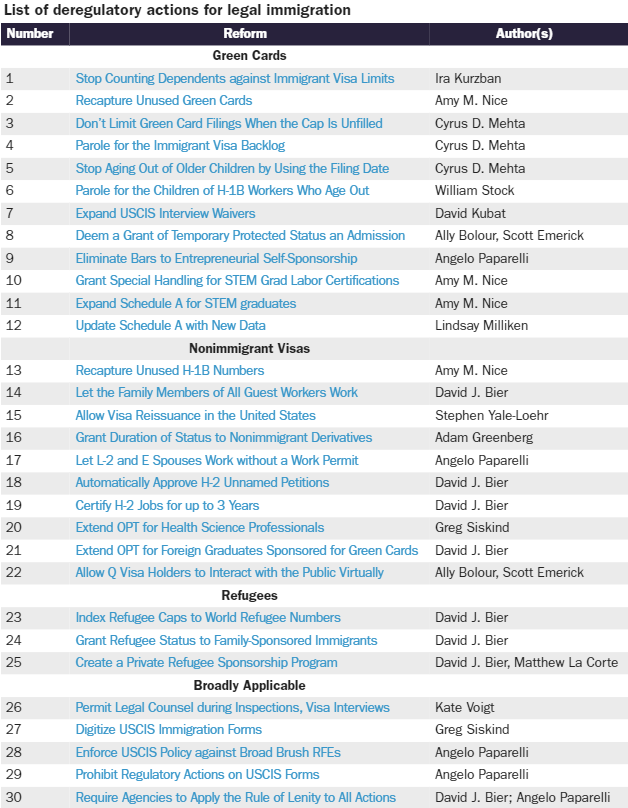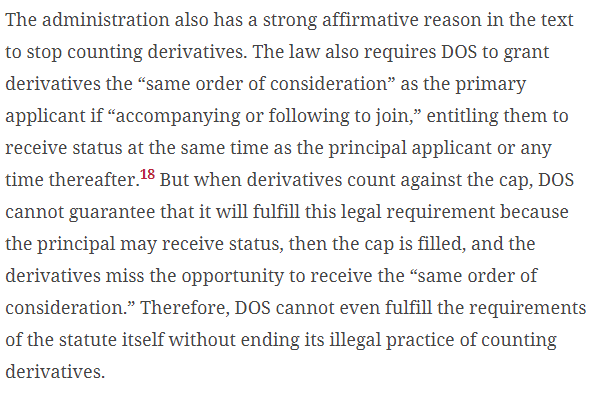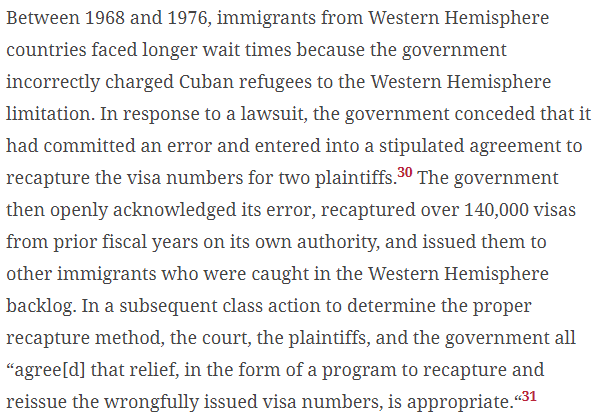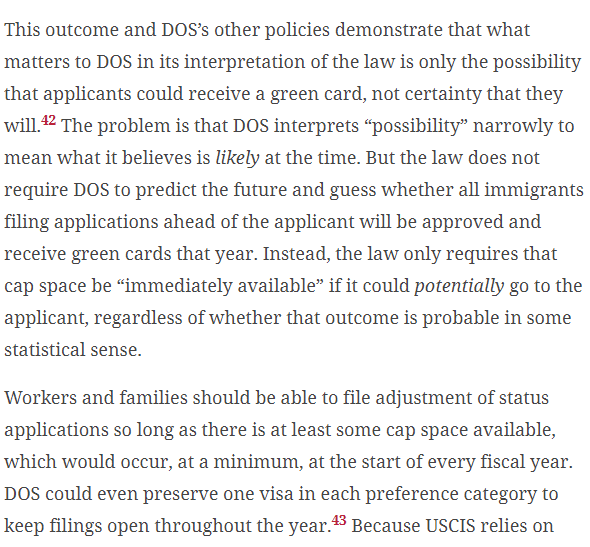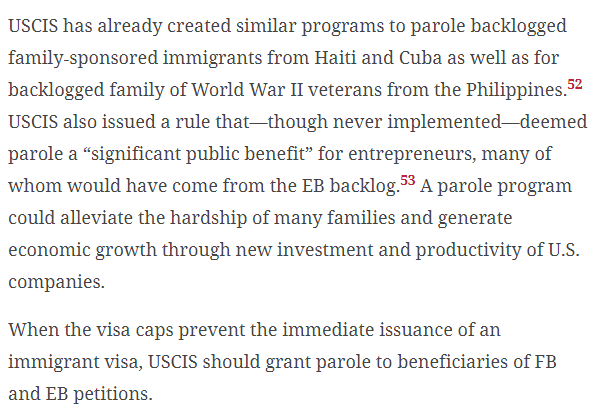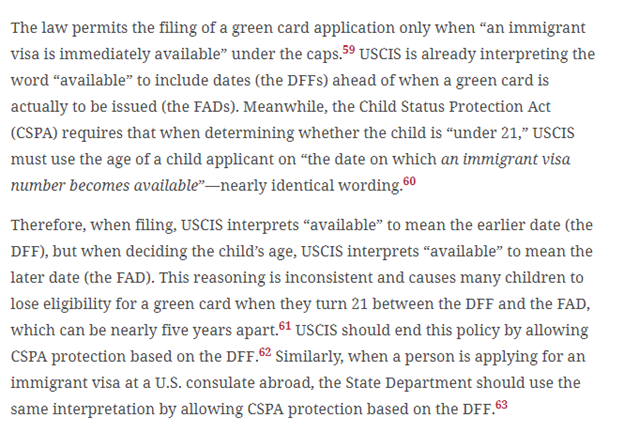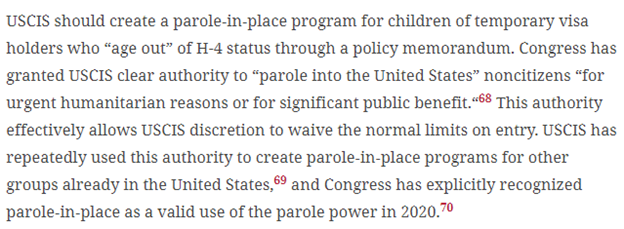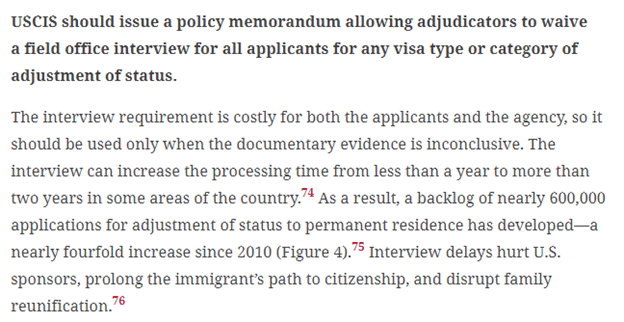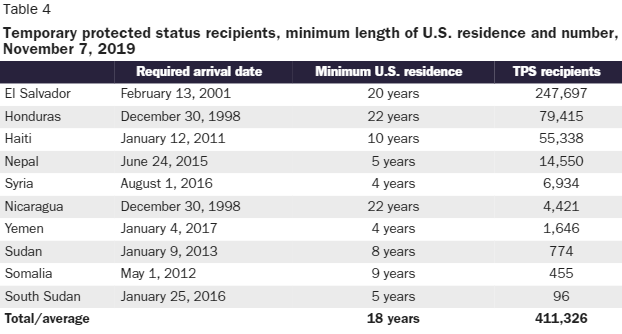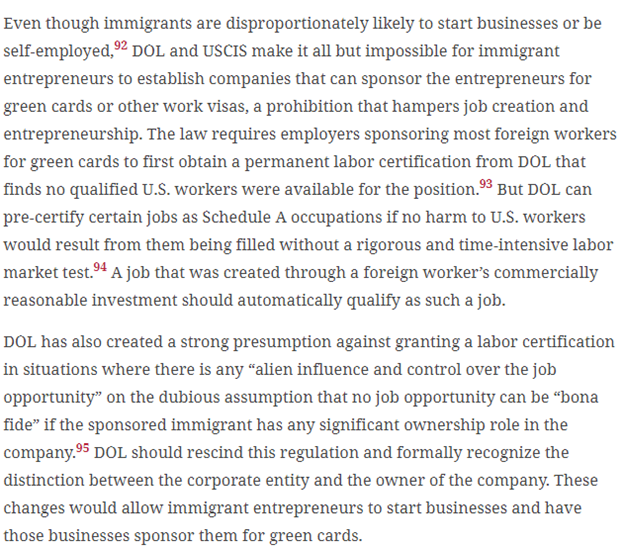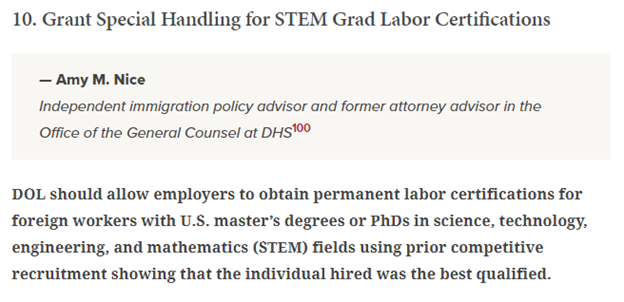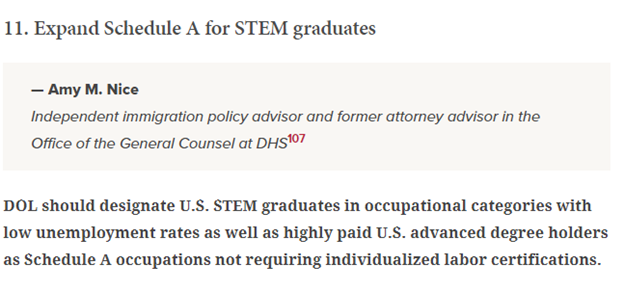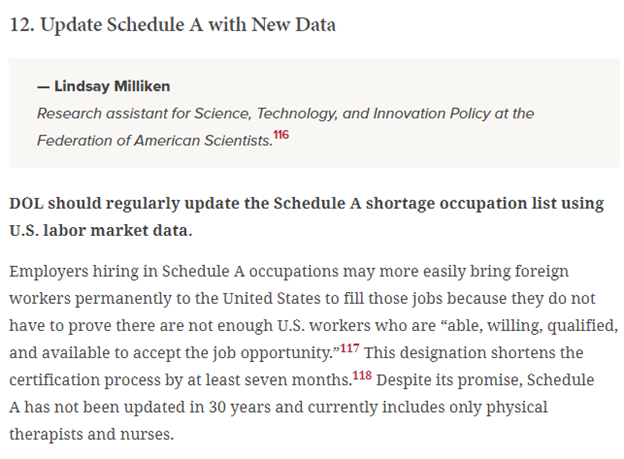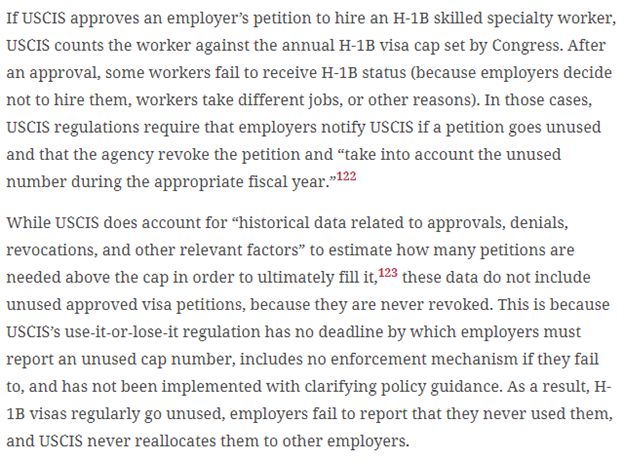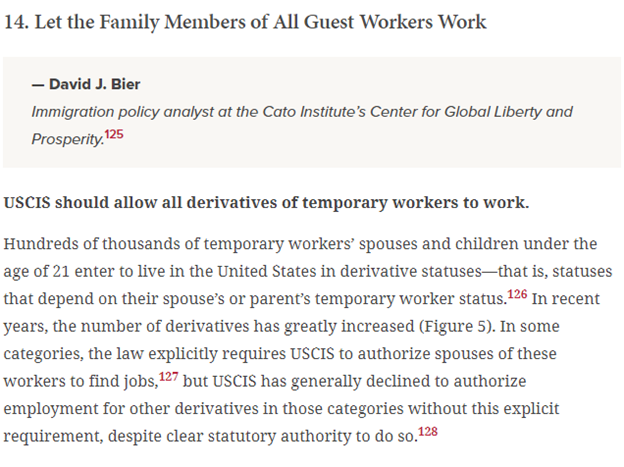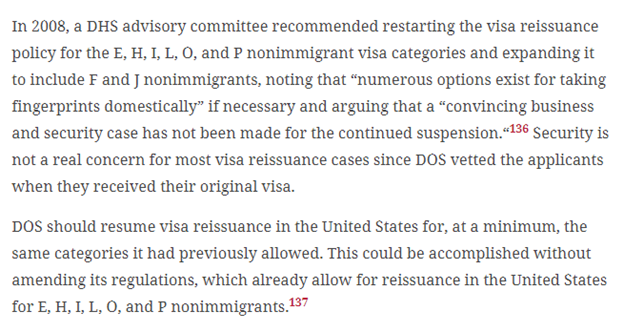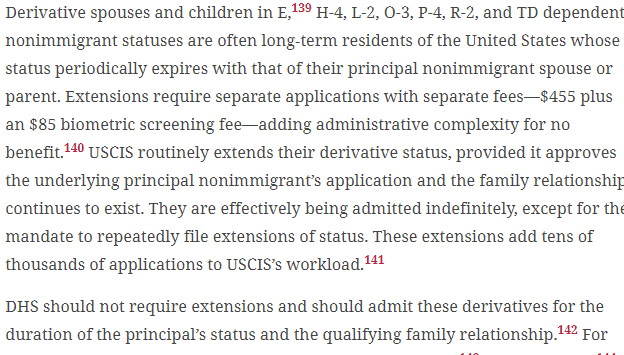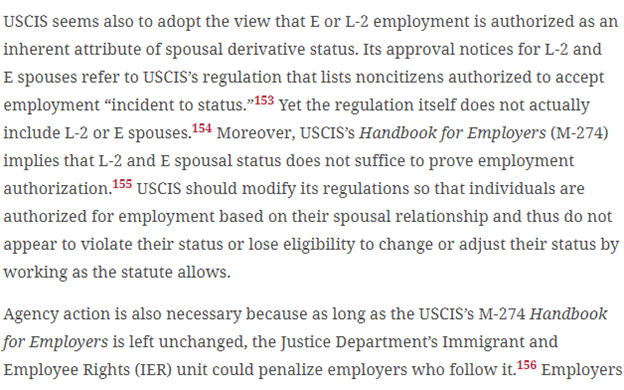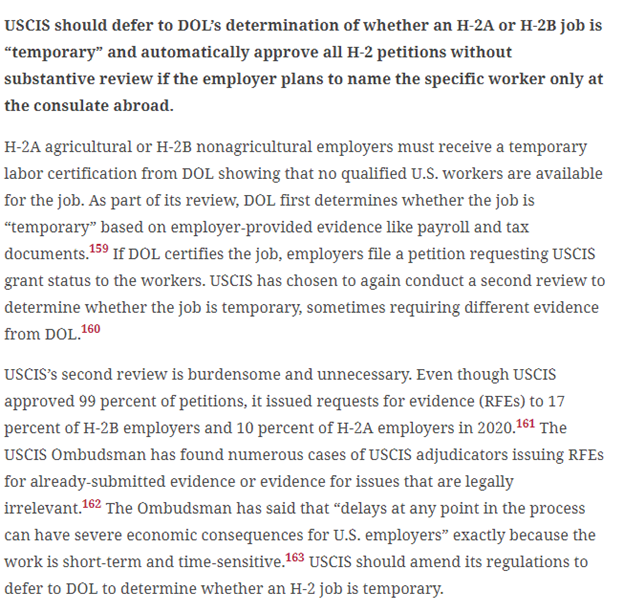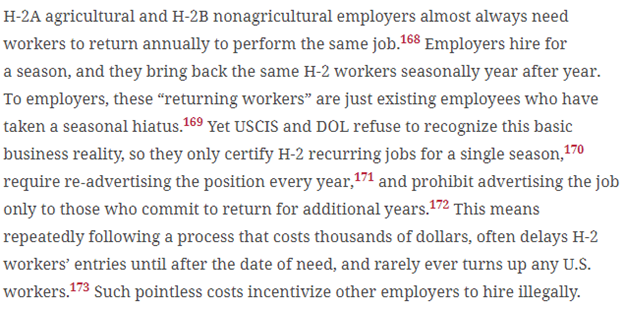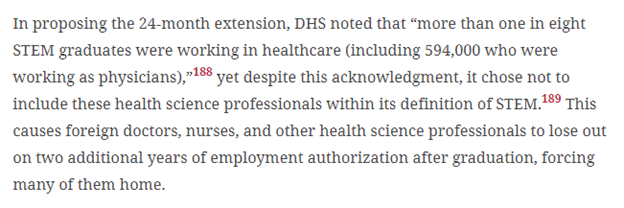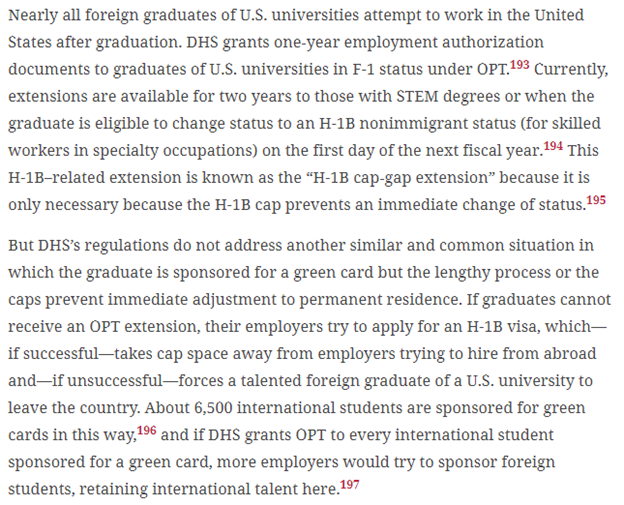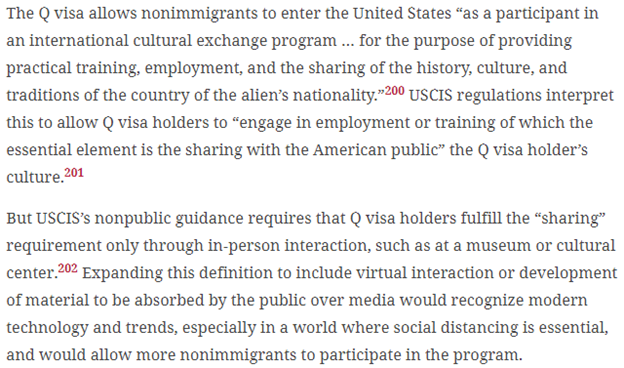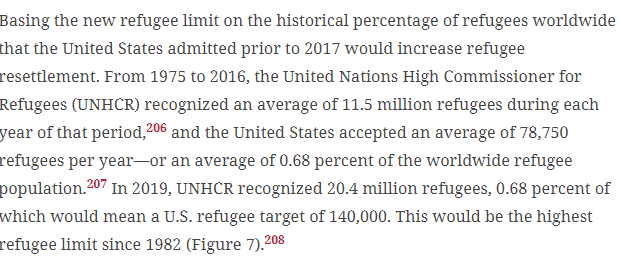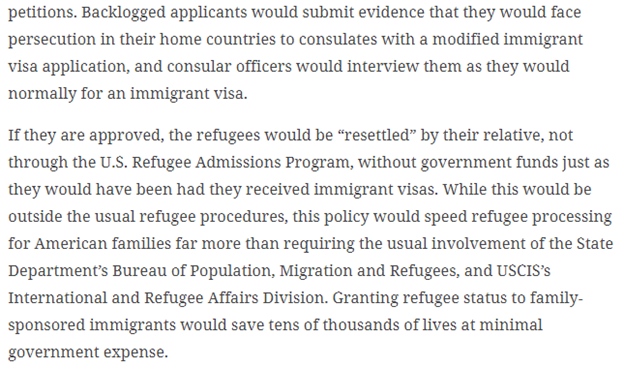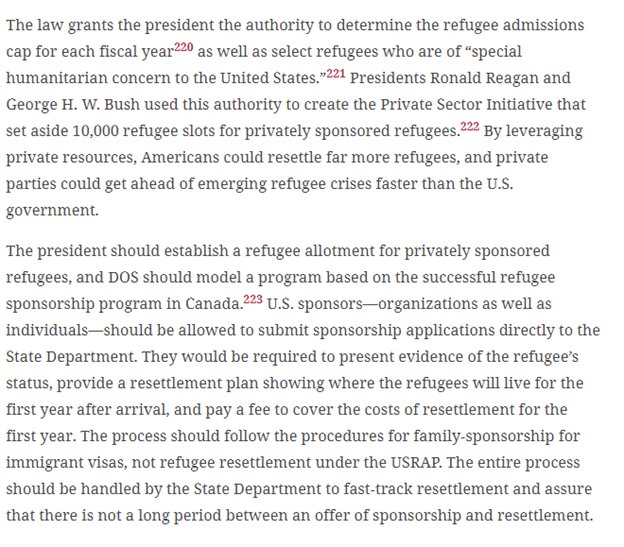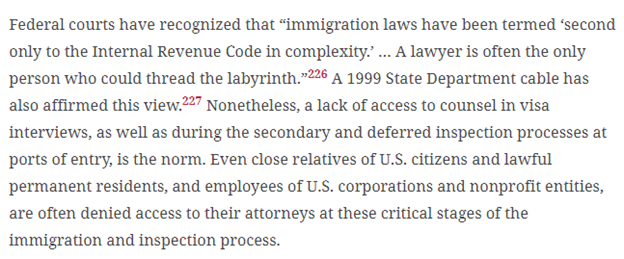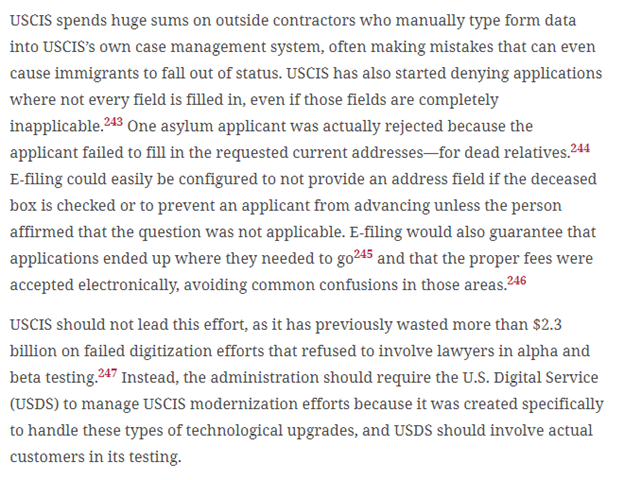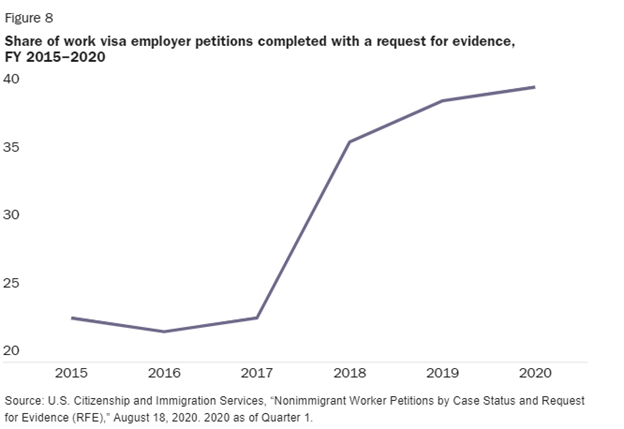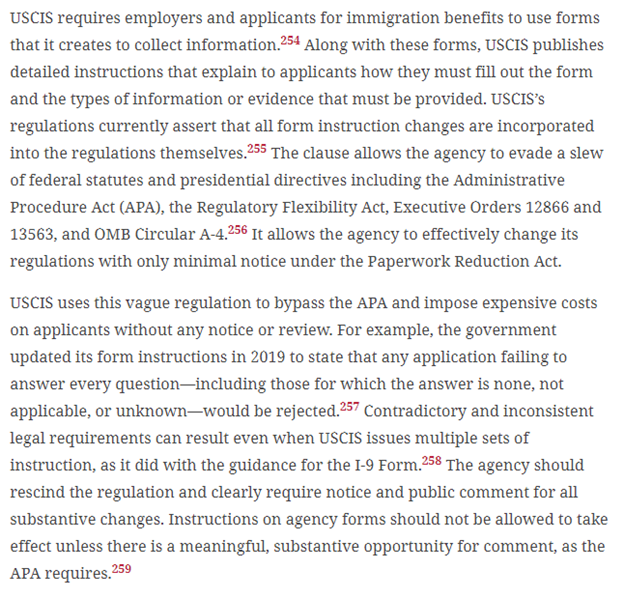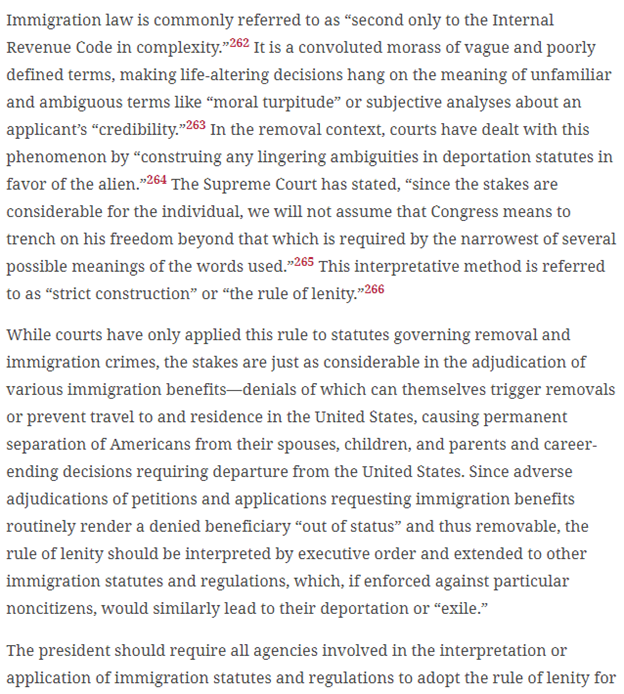New! @CatoInstitute published today 30 short essays by 15 authors including some of America's leading immigration law experts urging Biden to go beyond reversing Trump's cuts & act to streamline & expand legal #immigration w/ agency action #BuildBackBetter https://www.cato.org/publications/study/deregulating-legal-immigration-blueprint-agency-action
My coauthors & I sped after Nov 7 to compile the most rigorous but brief & readable cases for specific exec actions. Thanks @IraKurzban @CyrusMehta @WStock215 @AllyBolour @DavidKubat @AngeloPaparelli @SYaleLoehr @ASGvisalaw @GSiskind @MLaCorte_ @AILANational (& Amy/Scott/Lindsay)
Our list (1) is solely #legalimmigration & (2) goes past all Trump actions. We feel reversing them is not enough. Obviously, we didn’t touch on every issue, but went for novel or high impact ideas. This list sets the bar high but much more needs to be done by the admin & Congress
Each proposal explains how the change will help legal immigrants and provides the legal authorities for action. I'm confident that the Biden admin working with these expert authors can implement these and withstand any court challenges to them & improve millions of people's lives
#1 I’m grateful to @IraKurzban for working w/ me on his lead essay, arguing for removing derivatives from green card caps. This will almost double the caps. The text supports this interpretation, but below is to me the most compelling. The govt must ignore the text to count them!
#2 Former-DHS official Amy M. Nice argues the admin can recapture unused EB green card cap numbers when agency delays caused them to be lost. She points out the government has already recaptured visa numbers on a large scale. This would add about 220,000 green cards
#3 @CyrusMehta makes a brilliant argument that I’d never heard before: DOS can make all priority dates current—allowing green card filings whenever the caps aren’t fully exhausted for everyone. This matters b/c simply filing a green card app brings important benefits like an EAD
#4 @CyrusMehta follows this by arguing that for immigrant visa applicants abroad who cannot enter because of the caps, USCIS should parole them into the US immediately to reunite with their families or start their jobs. USCIS has already done this for certain nationalities!
#5 @CyrusMehta adds yet another excellent case that USCIS should stop allowing older children to age out of green card eligibility by requiring them to be 21 (adjusted for petition delays) on their final action date, rather than 21 on their date for filing
#6 @WStock215 argues USCIS should create a parole-in-place program to protect “legal dreamers” who have aged out of their derivative status and green card eligibility. It’s wrong to send these kids back to countries they didn’t grow up in & losing them hurts the US economically
#7 In a piece that had to be updated twice since mid-Nov b/c of last second Trump changes, @DavidKubat argues USCIS should grant broad discretion to waive immigration interviews to help address the massive adjustment of status backlog & reduce costs for the agency
#8 @AllyBolour & Scott Emerick argue USCIS should recognize a grant of TPS as an “admission” to allow TPS who are otherwise eligible for green cards to adjust to legal permanent residence. This issue has been litigated over w/ a circuit split but never w/ USCIS on the right side!
#9 @AngeloPaparelli sketches out plans for DOL and USCIS to remove barriers to entrepreneurs being sponsored for green cards and visas by the companies they form. You’d think encouraging entrepreneurship would be a priority for any admin!
In 2 pieces, #10 Amy Nice explains how DOL should streamline permanent labor certifications for STEM degree holders by implementing a portion of the law it has never implemented. #11 She argues that DOL should pre-certify more STEM jobs as ones that won’t harm US workers
#12 Lindsay Milliken of @FAScientists agrees that permanent labor certifications need to be streamlined, noting that its Schedule A “shortage occupation” classifications have not been updated in 30 years. She says DOL should use current data to update them every year
#13 Turning to nonimmigrant visas, Amy Nice also explains how USCIS fails to enforce its own regulation to prevent wasting unused H-1B visas. USCIS can immediately rectify this issue with a policy memo, creating more cap space for companies to hire foreign workers
#14 I argue that all family members of all guest workers in derivative statuses should be allowed to work. USCIS clearly has this authority and there’s a great reason to do it: these programs’ purpose is to increase economic growth & this change would enhance that goal
#15 @SYaleLoehr says DOS should reinstate its prior practice of reissuing visas in DC rather than requiring long-term temporary visa holders to travel abroad. DOS’s security argument lacks merit and DHS’s advisory committee already recommended doing it more than a decade ago
#16 @ASGvisalaw proposes that derivatives of nonimmigrants be admitted for duration of status rather than requiring renewals separate from the principal applicant. This separate renewal policy imposes a huge burden on applicants & USCIS with zero benefits.
#17 @AngeloPaparelli argues for a really simple change that should be uncontroversial: L-2 and E spouses should be allowed to work without an EAD. The story of why it’s unclear if they can is just bizarre. USCIS seems to acknowledge it while denying it at the same time! Fix it!
#18 I argue that USCIS should automatically approve H-2 petitions if the employer plans to name the specific worker only at the consulate abroad by deferring to DOL’s determination of whether an #H2A or #H2B job is “temporary”. This would greatly streamline the H2 process
#19 I argue DOL should certify #H2A & #H2B jobs for up to 3 years if the worker is returning to the same job. This would effectively exempt those workers from the #H2B cap & greatly fast track the process for all H2 workers who employers already consider existing employees
#20 @GSiskind makes the case for granting OPT STEM extensions to health science professionals like doctors, nurses, surgeons, and others. DHS already acknowledged that many STEM grads are health science professionals, but failed to include them in OPT extensions
#21 I argue DHS should grant OPT extensions to any foreign student who is sponsored for a green card. This would grant employment authorization and status until they receive a green card, which would create a bridge to permanent residence that wouldn’t require an #H1B
#22 For a change that would make the rarely used Q visa far more useful to the United States, @AllyBolour & Scott Emerick say USCIS should allow Q visa holders to meet the requirement to “interact with the public” with virtual interaction or development of material for the public
#23 I argue that the Biden admin should increase the refugee cap by indexing it to world refugee numbers. The refugee flows should respond to the increasing worldwide need for resettlement and not be based solely on domestic political factors.
#24 I argue the Biden administration should also separately and apart from the refugee cap allow anyone who is a refugee but is also sponsored for a green card by a US family member but who cannot come due to the caps to receive refugee status and immediately enter the US
#25 @MLaCorte_ and I reprise our arguments for a broader private refugee sponsorship program along the lines that Canada already allows. The State Dept had already hinted in 2016 that it had plans of doing this. Hopefully, it follows through this time!
#26 Kate Voigt summarizes @AILANational’s excellent petition for rulemaking to DHS/DOS to permit access to legal counsel for visa applicants and anyone placed in secondary/deferred inspections at ports of entry. No change will prevent more wrongful denials
https://www.aila.org/infonet/request-rulemaking-on-access-to-counsel
https://www.aila.org/infonet/request-rulemaking-on-access-to-counsel
#27 @GSiskind says it’s long past time that USCIS enter the digital age by allowing for electronic filing of all USCIS application forms in a modern filing system. But he doesn’t trust USCIS to lead the effort. He calls for @USDS to take over the process
#28 @AngeloPaparelli wants to reverse the astounding increase RFEs by enforcing USCIS’s prohibition on broad-brush or template RFEs, which USCIS’s Ombudsman and courts have found are often requesting identical info to what was already submitted.
#29 @AngeloPaparelli also would prohibit regulatory actions on USCIS forms, which allow substantive changes to harm applicants without notice and public comment procedures being followed. This would include the now infamous "no blank spaces" policy
#30 @AngeloPaparelli and I argue that the president should issue an executive order requiring immigration agencies to interpret all interpretations of statutes or regulations with leniency in favor of the applicant or petitioner.
All the authors understand DHS must prioritize reversing Trump actions, but we also believe that just getting back to 2016 is not good enough. We also agree that admin actions should not lessen the need for Congress to fix the law. I’ve laid out priorities https://www.cato.org/publications/e-publications/reforming-immigration-system-brief-outline

 Read on Twitter
Read on Twitter